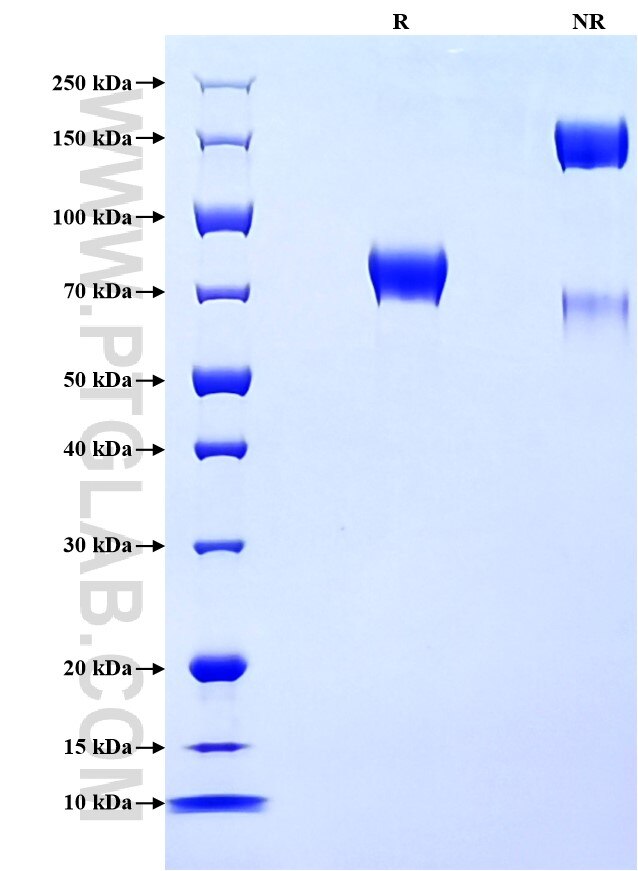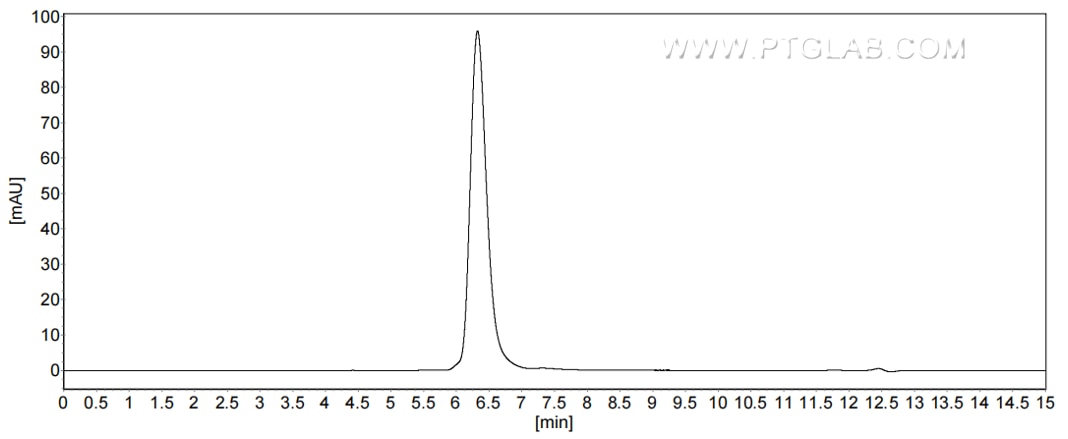Recombinant Human CD46 protein (rFc Tag)(HPLC verified)
Species
Human
Purity
>90 %, SDS-PAGE
>90 %, SEC-HPLC
Tag
rFc Tag
Activity
not tested
Cat no : Eg1770
Validation Data Gallery
Product Information
| Purity | >90 %, SDS-PAGE >90 %, SEC-HPLC |
| Endotoxin | <0.1 EU/μg protein, LAL method |
| Activity |
Not tested |
| Expression | HEK293-derived Human CD46 protein Cys35-Asp328 (Accession# P15529-11) with a rabbit IgG Fc tag at the C-terminus. |
| GeneID | 4179 |
| Accession | P15529-11 |
| PredictedSize | 59.1 kDa |
| SDS-PAGE | 68-85 kDa, reducing (R) conditions |
| Formulation | Lyophilized from 0.22 μm filtered solution in PBS, pH 7.4. Normally 5% trehalose and 5% mannitol are added as protectants before lyophilization. |
| Reconstitution | Briefly centrifuge the tube before opening. Reconstitute at 0.1-0.5 mg/mL in sterile water. |
| Storage Conditions |
It is recommended that the protein be aliquoted for optimal storage. Avoid repeated freeze-thaw cycles.
|
| Shipping | The product is shipped at ambient temperature. Upon receipt, store it immediately at the recommended temperature. |
Background
CD46, also known as Membrane cofactor protein (MCP) or MIC10, is a ubiquitously expressed type type-I transmembrane glycoprotein that acts as a cofactor for complement factor I to mediate inactivation of C3b and C4b deposited on host cells. CD46 is a receptor for a large number of pathogens, including measles virus and adenovirus. CD46 plays a role in linking innate and adaptive immune responses. It may be involved in the fusion of the spermatozoa with the oocyte during fertilization. Mutations of the CD46 gene have been associated with some diseases including hemolytic uremic syndrome. CD46 is expressed on most cells as four isoforms that are derived via alternative splicing.
References:
1. Persson BD. et al. (2010) PLoS Pathog. 6(9):e1001122. 2. Liszewski MK. et al. (2015) Hum Genomics. 9(1):7. 3. Riley-Vargas RC. et al. (2004) Trends Immunol. 25(9):496-503.


